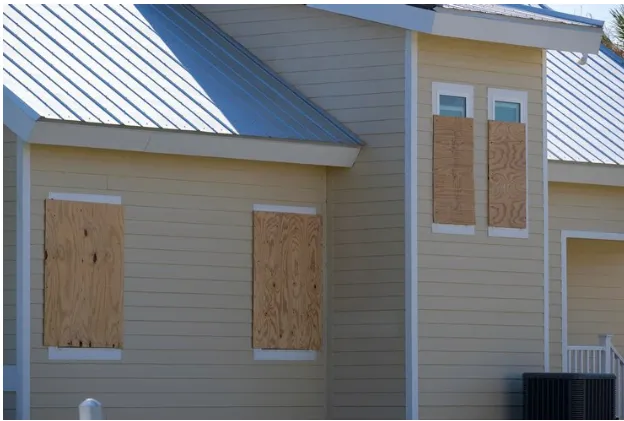Cost Analysis: Siding Replacement vs Repair in Kansas City

When it comes to maintaining your home’s exterior, siding plays a pivotal role in protecting against the elements and enhancing the curb appeal. Over time, however, siding can become damaged or worn out, leading homeowners to consider either repairing or replacing it. In Kansas City, the decision between siding replacement and repair can significantly impact both the cost and long-term value of your home. This article provides an in-depth analysis of the factors involved in choosing the right solution for your home’s siding needs, along with the cost differences and benefits of each option.
Also Read: Canonsburg Roofing Companies: Your Ultimate Guide to Choosing the Best
Understanding Siding Types and Their Lifespan
Before diving into the costs, it is essential to understand the types of siding materials available and their typical lifespans. In Kansas City, homeowners commonly choose from several siding materials, each with its advantages and challenges. Here are some of the most popular siding options:
Vinyl Siding
Vinyl is one of the most common siding materials due to its affordability and low maintenance needs. It can last anywhere from 20 to 40 years, depending on the quality and exposure to the elements. Vinyl siding is resistant to pests and moisture, but it can crack or fade over time, especially with exposure to extreme weather conditions.
Wood Siding
Wood siding offers a natural aesthetic and can last between 20 and 40 years, depending on the wood type and care. However, it requires regular maintenance, including painting and sealing, to prevent rot, insect damage, and warping.
Fiber Cement Siding
Fiber cement is known for its durability and resistance to fire, rot, and pests. It typically lasts between 30 and 50 years with minimal maintenance, making it a popular choice for Kansas City homes.
Metal Siding
Metal siding, such as aluminum or steel, offers excellent durability and longevity, with a lifespan of 40 to 70 years. It is resistant to extreme weather conditions and does not require frequent repairs. However, metal siding can dent or scratch, especially in areas with high winds.
Stucco Siding
Stucco is a durable, aesthetic choice for many Kansas City homeowners. It lasts 50 to 70 years if properly maintained. However, stucco can develop cracks and require regular upkeep to avoid water damage.
Each siding material has its unique benefits, but all of them can eventually experience issues that necessitate either repair or replacement. Now, let’s delve into the cost considerations of both options.
Siding Repair: When Is It a Viable Option?
Siding repair involves fixing specific damages, such as cracks, holes, or loose sections of siding. If the rest of your siding is in good condition, repairing may be the more cost-effective option. The decision to repair typically depends on the extent of the damage, the material, and the overall condition of your existing siding.
Factors Affecting Repair Costs
Several factors influence the cost of siding repair, including:
- The extent of Damage: Minor cracks or holes can usually be repaired for a lower cost, while significant issues, such as rotting wood or widespread damage, may require more intensive work.
- Siding Material: Repair costs vary by material. For example, repairing vinyl siding is typically cheaper than repairing fiber cement or wood siding due to the cost of materials and the expertise required.
- Labor Costs: In Kansas City, labor costs typically range from $50 to $100 per hour for siding repair, depending on the contractor and the complexity of the job.
Estimated Costs for Repair
- Vinyl Siding: The cost of repairing vinyl siding can range from $150 to $500 for minor damage, but extensive damage may cost more.
- Wood Siding: For wood siding, repairs can cost between $200 and $600, depending on the size of the damage and the need for new materials.
- Fiber Cement and Metal Siding: These materials are more challenging to repair, and costs typically range from $300 to $1,000 for larger repairs, especially if the siding has to be replaced entirely in sections.
In cases where the damage is isolated and does not affect a large portion of the siding, repairing might be the most economical and effective solution. However, if there are underlying issues that affect the structural integrity of the siding or if the material is nearing the end of its lifespan, replacement may be the better option.
Siding Replacement: When It’s Time for a Full Overhaul
Siding replacement involves removing the existing siding and installing new material. This is usually necessary when the siding has reached the end of its lifespan, when damage is widespread, or when the maintenance costs of keeping the siding in good condition outweigh the cost of replacing it entirely. Replacement is often more expensive than repair, but it offers long-term benefits such as increased home value, energy efficiency, and improved aesthetics.
Factors Affecting Replacement Costs
- Size of the Home: The larger the home, the more siding is required, which increases the cost. In Kansas City, the average home size is around 2,200 square feet, which translates to a siding area of roughly 1,500 to 2,000 square feet.
- Siding Material: The material you choose for replacement plays a significant role in the cost. Vinyl is typically the most affordable, while materials like fiber cement or metal are more expensive but offer higher durability.
- Labor Costs: Labor costs for siding replacement in Kansas City typically range from $3 to $8 per square foot, depending on the complexity of the job and the type of siding being installed.
- Removal Costs: If your existing siding needs to be removed, this can add another $1 to $3 per square foot to the total cost.
Estimated Costs for Siding Replacement
- Vinyl Siding: Replacing vinyl siding typically costs between $5,000 and $10,000 for an average-sized home, depending on material quality and labor.
- Wood Siding: Replacing wood siding can range from $8,000 to $15,000, depending on the type of wood and whether any additional work, such as framing or insulation, is required.
- Fiber Cement and Metal Siding: These higher-end materials can cost between $10,000 and $25,000 for full replacement, depending on the material choice and home size.
Though more expensive than repair, siding replacement provides the advantage of long-term durability and the opportunity to update the look of your home, increase its market value, and improve energy efficiency.
Cost Comparison: Siding Repair vs. Replacement
Siding replacement, while more expensive, can offer better value over the long term by enhancing curb appeal, reducing maintenance needs, and improving energy efficiency.
When Should You Repair vs. Replace Your Siding?
Determining whether to repair or replace your siding depends on several key factors:
1. Extent of Damage
If the damage is isolated and confined to a small section of the siding, repairing may be sufficient. However, if the siding is extensively damaged, cracked, or rotting across large areas, replacement is likely the best option.
2. Age of the Siding
If your siding is over 20 years old and showing significant signs of wear and tear, replacement is often more cost-effective in the long run. For newer siding with minor issues, repairing may be a better choice.
3. Budget
If you’re on a tight budget, repairing your siding can be a more affordable short-term solution. However, if you can afford the investment and want to increase the value of your home, replacement might be the better option.
4. Home Improvement Goals
Consider your long-term plans for your home. If you’re looking to sell soon, replacing the siding with a more durable and visually appealing material can significantly increase your home’s resale value.
FAQs
1. How long does it take to replace siding in Kansas City?
Siding replacement typically takes between 5 to 7 days for an average-sized home, depending on the type of material and weather conditions.
2. Can I finance my siding replacement project?
Yes, many contractors offer financing options, and home improvement loans or credit cards can also be used to finance siding replacements.
3. Will replacing my siding improve my home’s energy efficiency?
Yes, new siding, especially when combined with proper insulation, can significantly improve your home’s energy efficiency by preventing heat loss and reducing heating and cooling costs.
4. Can I replace my siding myself?
While it is possible to DIY, siding replacement is a complex and labor-intensive project. Hiring a professional ensures the job is done correctly and up to code.
5. How can I maintain my siding to extend its lifespan?
Regular cleaning, sealing, and inspecting for cracks or damage can help extend the lifespan of your siding. For wood siding, periodic painting and sealing are necessary to prevent damage.
Conclusion
When deciding between siding repair and replacement in Kansas City, homeowners must weigh the costs, benefits, and long-term goals for their homes. Repairing your siding can be a cost-effective solution for minor damage, but for extensive damage or aging materials, replacement may be the better investment. Regardless of your choice, working with a professional contractor ensures that you make the best decision for the future of your home.





